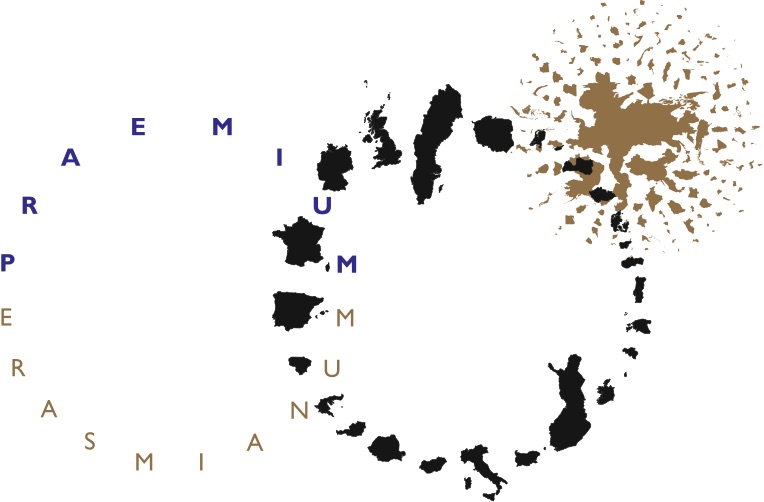About Erasmus Prize
The Erasmus Prize is awarded annually to a person or institution that has made an exceptional contribution to the humanities, the social sciences or the arts, in Europe and beyond. The award consists of a cash prize of €150,000.
Emphasizing the importance of tolerance, cultural pluriformity and non-dogmatic critical thinking, the Foundation endeavours to express these values in the choice of its laureates. The Erasmus Prize is awarded by the Board of the Praemium Erasmianum Foundation. His Majesty the King is Patron of the Foundation.
Assignment of the Prize
The Board of the Foundation determines well in advance the area in which an Erasmus Prize will be awarded. Subsequently, an advisory committee is formed which proposes a laureate after consulting with Dutch and foreign experts. The Board is responsible for the final decision about the choice of the laureate.
Activities
In conjunction with the presentation of the Erasmus Prize, the Foundation organises a wide range of activities that are relevant to the sector of the Prize of that year. These events are initiated and organised in co-operation with other cultural and academic institutions, and may include – depending on the theme of the Prize – lectures, conferences, workshops, exhibitions, dance, music and theatre performances, and educational activities.
Prize & Adornments
The Erasmus Prize consists of euro 150,000 and adornments. The adornments were designed by Bruno Ninaber van Eyben in 1995. The adornments consist of a harmonica folded ribbon with a titanium plate at both ends. In closed form it is a booklet; when opened a ribbon with a text in Erasmus’ handwriting. This text taken from a letter to Jean de Carondelet (Basel 5 January 1523) is characteristic of Erasmus’ thinking: “diverse are the gifts of men of genius and many are the different kinds of ages. let each one reveal the scope of his competence and let no one be envious of another who in keeping with his own ability and style tries to make a useful contribution to the education of all.”

Finance and grants
The Foundation is funded by an endowment from the Dutch Lottery and Sports Totaliser, and is not dependent on any other funds. The Praemium Erasmianum Foundation does not award incidental grants.
Erasmus
The Praemium Erasmianum Foundation derives its name from the Dutch humanist scholar Desiderius Erasmus (1466-1536). Erasmus was a true world citizen, with a universal view of life: humaneness is of greater value than any dogma. He rejected ideological dissension and pleaded for moderation and tolerance.
